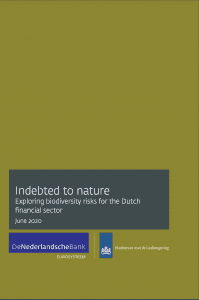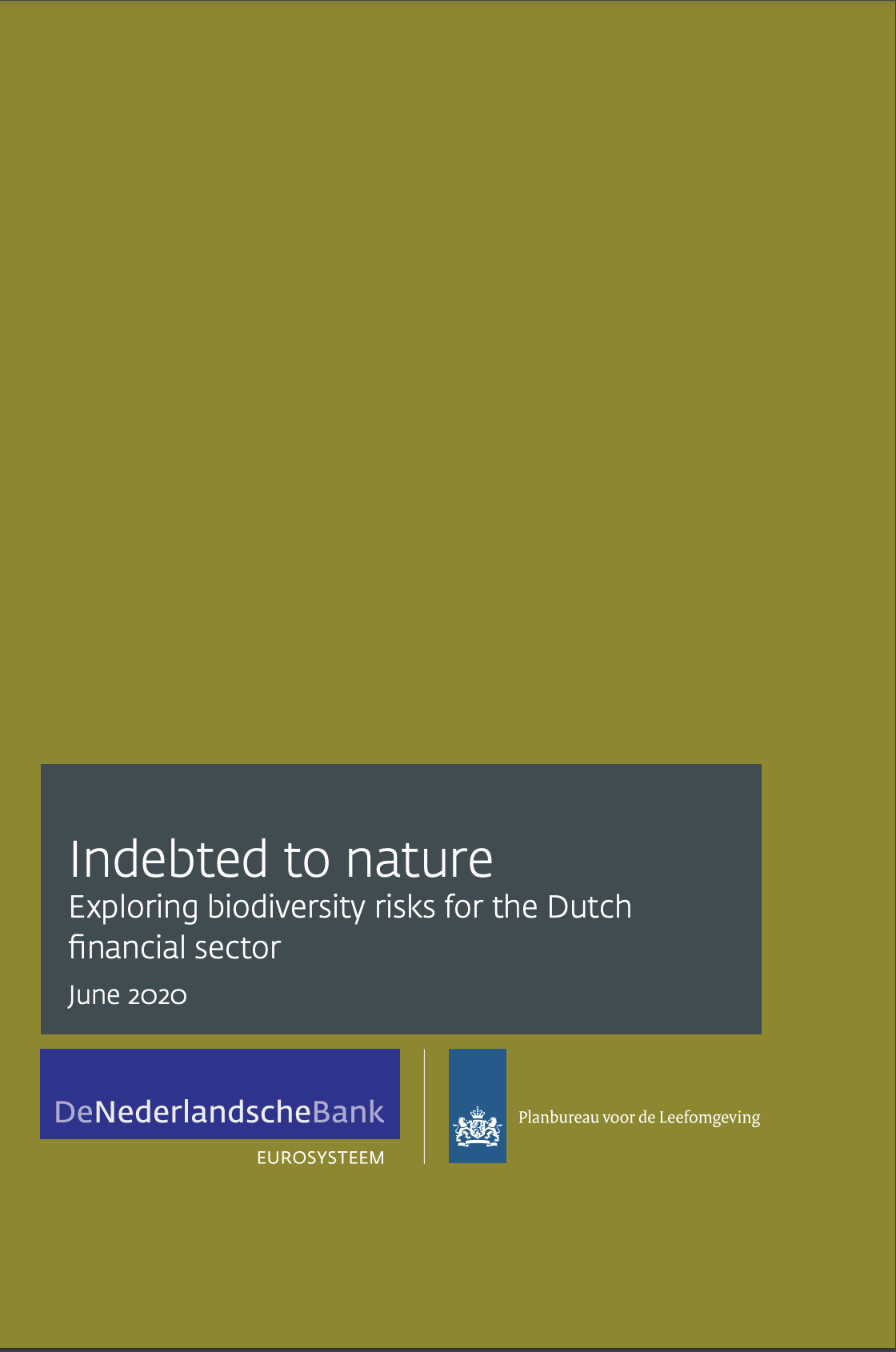
Indebted to nature. Exploring biodiversity risks for the Dutch financial sector
The Dutch financial institutions have hundreds of billions of euros in outstanding loans on which they may be exposed to risks as a result of loss of biodiversity. DNB, together with the Netherlands Environmental Assessment Agency (Planbureau voor de Leefomgeving, PBL), have concluded in the report Indebted to nature. Exploring biodiversity risks for the Dutch financial sector that it is important that the financial sector maps the risks resulting from a loss of biodiversity and the dependency of companies to which they provide loans on the ecosystem services. According to authors, biodiversity loss threatens the availability of ecosystem services, which are disappearing, due to amendments to legislation to protect the environment and nature, or due to environmental controversies. Financial institutions that finance economic activities that depend on those ecosystem services are therefore exposed to the physical risks of biodiversity loss. An example is pollination of food crops: when bees disappear, problems can arise in agriculture. Dutch banks, insurers and pension funds worldwide have EUR 510 billion in loans outstanding to companies with a high or very high dependence on one or more ecosystem services. In addition, the report highlights that climate change is one of the main causes of biodiversity loss, and because different forms of nature management influence climate change, it is important that financial institutions consider climate-related and biodiversity risks together in their risk management. Según el informe, la pérdida de biodiversidad amenaza la disponibilidad de los servicios de los ecosistemas, que están desapareciendo debido a enmiendas a la legislación para proteger el medioambiente y la naturaleza, o como consecuencia de controversias ambientales. Las instituciones financieras que financian actividades económicas que dependen de esos servicios de los ecosistemas están, por tanto, expuestas a los riesgos físicos de la pérdida de biodiversidad. Un ejemplo es la polinización de cultivos alimentarios: cuando las abejas desaparecen, pueden surgir problemas en la agricultura. Los bancos, las aseguradoras y los fondos de pensiones holandeses de todo el mundo tienen 510 000 millones de euros en préstamos a empresas con una dependencia alta o muy alta de uno o más servicios del ecosistema. Adicionalmente, los autores resaltan que el cambio climático es una de las principales causas de la pérdida de biodiversidad, y debido a que las diferentes formas de gestión de la naturaleza influyen en el cambio climático, es importante que las instituciones financieras consideren los riesgos relacionados con el clima y la biodiversidad en conjunto en su gestión de riesgos.



No Comments